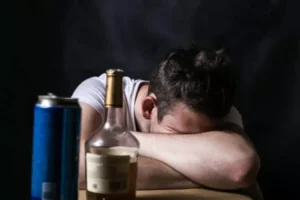Alcohol and insomnia: Possible risks and more

Chronic hazardous drinking was indicated in 38% men and 17% women. The Whitehall II study was established in 1985 as a longitudinal study to examine the socioeconomic gradient in health and disease among 10,308 civil servants (6895 men and 3413 https://ecosoberhouse.com/article/what-is-a-high-functioning-alcoholic/ women)12. All civil servants aged 35–55 years in 20 London-based departments were invited to participate by letter and 73% agreed. Subsequent phases of data collection have alternated between postal questionnaire alone and postal questionnaire accompanied by a clinical examination. The most effective time of day for the body to metabolize alcohol, according to research?
- Heavy drinking can make the sleep- and circadian rhythm-disrupting effects of alcohol worse.
- Alcohol interferes with the brain’s ability to receive chemical messages involved in breathing, which decreases the body’s respiratory drive and increases the likelihood of pauses in breathing.
- Information provided on Forbes Health is for educational purposes only.
- Whilst we did not measure alcohol dependence, we did find such an association between hazardous drinking and disturbed sleep in our data.
- “Overall, alcohol should be consumed in moderation,” says Benjamin.
- Consuming certain substances, such as alcohol, can disrupt sleep schedules.
What To Do After Drinking Too Much Before Bed
For many people, enjoying the occasional drink with friends or a glass of wine with dinner is something to look forward to. However, while you may feel more relaxed and drift off to sleep alcohol insomnia quicker after having a drink, when morning rolls around, you might find yourself wondering why you feel so groggy and tired—especially after falling asleep so easily. “First of all, it increases our initial deep sleep, disrupting our sleep stages’ overall balance,” he said. Alcohol consumption can lead to insomnia, sleep apnea, and a host of other health issues.

Sleep Medicine Physician

Alcohol also relaxes your throat muscles, which can worsen snoring and sleep apnea. It’s true that drinking alcohol can make the first few hours of your sleep more restful. It increases your slow-wave sleep (SWS) stage, a dreamless state in which your body repairs itself and regulates the immune system.
- Generally, females and older adults are at a higher risk for insomnia.
- The evidence to date suggests that subjective and objective sleep continuity variables (insomnia) are robust predictors of relapse during recovery from alcohol dependence.
- Based on data from roughly 160,000 Sleep Foundation profiles, nearly 90% of respondents who regularly consume alcohol in the evening have reported at least one sleep-related problem.
- Take the Sleep Quiz to help inform your sleep improvement journey.
Studying alcohol and sleep quality
Dr. Khosla runs a telemedicine outreach program that serves rural areas in North Dakota and has done so for the past decade. She is active within AASM and has served on numerous AASM committees, including the original Telemedicine Task Force. She also served as the inaugural chair of the Clinical and Consumer Sleep Technology Committee and is the current chair of the AASM Public Awareness Advisory Committee. Sunnyside uses a psychology-based approach to help you drink more mindfully, no matter what your goal is. You’ll get a 100% custom plan, then use daily texts to track your progress and help you stay on target.
Risk of Falls

Individuals with insomnia have difficulty maintaining a consistent sleep schedule. Experts state that acute insomnia lasts up to a few days to weeks, while chronic insomnia continues for several months. His research and clinical practice focuses on the entire myriad of sleep disorders. While a drink now and then may have a sedative effect that causes you to drift off faster, research shows that it can impede sleep quality in the long run.

Logistic regression analyses with the sleep variables as the outcome variable, and alcohol variables as the main exposure, were performed in Stata v15, adjusting for age. Models were carried out separately for the different alcohol measurements, and were stratified by men and women. Participants were considered to be chronically hazardous drinkers if they were AUDIT-C positive on three of more data collection phases (in the retrospective alcohol life-course grid).
This can lead to excessive daytime sleepiness and other problems the next day. Drinking alcohol can also increase your tolerance, causing you to drink more to experience its sedative effects. Statistics show that 5.3 percent of all people 12 and older in the U.S. have an alcohol use disorder.


